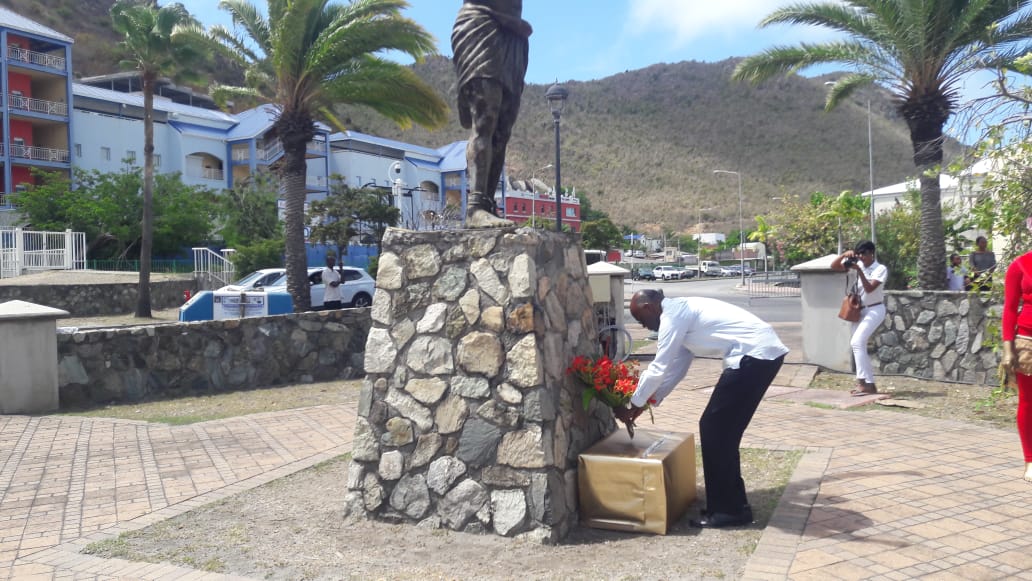St. Maarten celebrated the 157th Anniversary of Emancipation

GREAT BAY — St. Maarten celebrated its 157th anniversary of the Emancipation from slavery with the theme Carrying the torch of the sacred legacy of emancipation.
In his speech, Governor of St. Maarten Drs. Eugene Holiday spoke of the emancipation proclamation that came into effect abolishing slavery on July 1, 1863.
He stated that “the Emancipation Proclamation marked the trial for the indomitable will of the enslaved men and women on St. Maarten to be free. The triumph which forever redefined our collective destiny and one St. Maarten people,” said Governor Holiday.
He described the 1863 Emancipation Proclamation that is celebrated today as a critical moment in the history of our island. He pointed out that it laid the foundation of the civil liberties that we enjoy today as one St. Maarten people.
He noted that the Emancipation Proclamation created the opportunity for a better life for all St. Maarteners regardless to race, color, gender or creed. He described the heroes of that time as giants like One Tete Lokey and other freedom fighters like her and quoted his grandfather, who said that “there is no success without sacrifice.”
He said that even as there is celebration, we are reminded that our freedom is not free. It was earned by the sacrifices and blood of our forefathers and, as a result, owing to them and future generations to carry the torch of emancipation. He noted that we must build on the positive contributions of “our early nation builders” such as Lionel Bernard Scott, Melford Hazel, Claude Wathey and Jose Lake Sr. just to name a few.
Prime Minister Silveria Jacobs in her remarks said that in 1863 when slavery was abolished our ancestors had already liberated themselves by making it economically difficult to maintain slavery on the southern side of St. Maarten. She said that the Northern side of the island was already free some 15 years before and as a result, the slave masters were unable to maintain freedom on one side and slavery on the other.
She said that although slavery was abolished in Europe, which was the transportation of slaves in the early 1800s, the Dutch was the last to abolish slavery. Jacobs, in her lesson in history, explained how difficult it was for the slaves to cross over to the Northern side of the island under conditions of gunfire sometimes.
She also described slavery as “one of the most brutal and inhumane time of the history of the island. Although the physical restraints were removed, we are yet to remove the institutionalized inequalities that we continue to face even today as member states in the Dutch Kingdom.”
In his remarks, the Minister of Education Culture Youth and Sports commended the head of the Culture Department for putting the Emancipation program together. He reiterated the comments of his Excellency, the Governor, who stated that freedom is not free, and as a result, the commemoration should be respected.
He spoke of the difficulties of slavery and the sacrifices that had to be made during those times and mentioned that all the slaves had to contribute to a successful run.
Watch the photos online here>>>
Related articles:
Emancipation Day speech of the Minister of Culture
Emancipation Day speech of the Prime Minister
Emancipation Day speech of the Governor


























